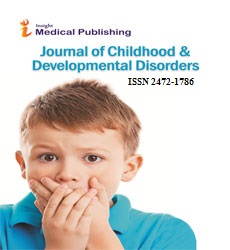Abstract
Parents Behavior in Early Childhood: Childrens and Parents Perceptions
According to Interpersonal Acceptance-Rejection Theory, the quality of emotional bond between parents and their children, as well as physical, verbal and symbolic behaviors that parents use to express their feelings to them, form a continuum. One end is marked by parental acceptance, while the other by parental rejection. The current study aims at exploring children’s perceptions about their parents’ behavior towards them, as well as comparing boys’ and girls’ perceptions. In addition, the study aims at comparing fathers’ with mothers’ perceptions about their behavior towards their children, as well as comparing children’s with their parents’ perceptions about parental behavior. A sample of 358 children was drawn and children’s mean age was 5,67 years (SD=1,05). Furthermore, 340 fathers participated in the study aged M=39,74 years (SD=5,67) and 355 mothers aged M=35,71 years (SD=5,27), who live in the geographical area of Epirus. Children completed the “Early Childhood Parental Acceptance- Rejection Questionnaire”(father and mother versions) and parents completed the “Parental Acceptance-Rejection/Control Questionnaire”. The Paired-Samples t-test was conducted comparing children’s assessments per factor, comparing fathers’ and mothers’ assessments per factor, as well as comparing children’s and parents’ assessments per factor. The Independent-Samples t-test was conducted comparing boys’ and girls’ assessments per factor. Results showed that children perceive more acceptance by their mothers than their fathers, and boys perceive more rejection by both parents than girls. Mothers consider themselves more affectionate and less indifferent than fathers themselves. Moreover, parents’ perceptions about their behaviors towards their children are more positive than children’s perceptions about the parental behavior
Author(s):
Christos Theodoropoulos and Artemis Giotsa*
Abstract | PDF
Share this

Google scholar citation report
Citations : 504
Journal of Childhood & Developmental Disorders received 504 citations as per google scholar report
Abstracted/Indexed in
- Google Scholar
- China National Knowledge Infrastructure (CNKI)
- Directory of Research Journal Indexing (DRJI)
- WorldCat
- Publons
- Geneva Foundation for Medical Education and Research
- Secret Search Engine Labs
- Euro Pub
Open Access Journals
- Aquaculture & Veterinary Science
- Chemistry & Chemical Sciences
- Clinical Sciences
- Engineering
- General Science
- Genetics & Molecular Biology
- Health Care & Nursing
- Immunology & Microbiology
- Materials Science
- Mathematics & Physics
- Medical Sciences
- Neurology & Psychiatry
- Oncology & Cancer Science
- Pharmaceutical Sciences

